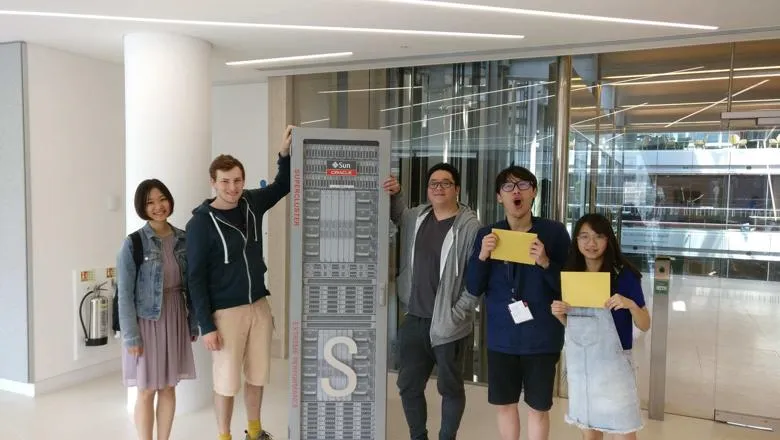19 July 2018
Student win at Oracle Hack the Trust
A team of students from the Department of Informatics recently won the Oracle Hack the Trust Hackathon. The team, named KCL_Koders, was made up of Cheng-Yuan Yu, John Vagg, Jingyu Li, Timothy Tang, Tzu-Yun Huang, all of whom are studying data science. They won the award for the most creative way of presenting data.

The team, keen to use their data science skills in a real world application, applied to the hackathon after seeing the event advertised on social media. The team are inspired to use the power of data to impact the world.
The aim of the Hackathon was to help the Prince’s Trust charity in identifying ways to assist young people in their studies and career through the use of open data or creating applications in one of five categories, comprising Bullying & Safeguarding, Education & Employment, Mental Health, Family Areas and Open Challenge. The team had 24 hours to put together a proposal, complete their programming and present their work.
The team proposed a visualisation framework that will aid educators and decision makers to intuitively and rapidly identify risk factors and potential for improvement. The team were successful in integrating a variety of open data sets with different granularities of time and geography. They combined education and employment data through geography data. Using a Monte Carlo method and finite population sampling based on mixture distributions with weights calculated by geographical distance, they filled missing values when dealing with integration of different open datasets. The team utilised entropy gains based on multiple datasets through bootstrap sampling to find out the important educational factors with impact on several employment indexes. By visualising data with geography (map) and creating an interface application, they enabled users to extract data information efficiently and easily carry out scenario analysis.
The team said that through their hard work and despite not resting during the 24 hours, they gained experience in dealing with real data and solidified their friendship.
The team said of their experience: ‘[It was] really exciting. This competition not only qualified our skills, but also we understood how important teamwork and communication skills are.’
One of the judges said of their work: ‘It was a very tough one, we saw really impressive presentations, however we were all very impressed with your solution and ability to present the data in a creative manner, given that there was such a harsh time constraint. Well done!’
